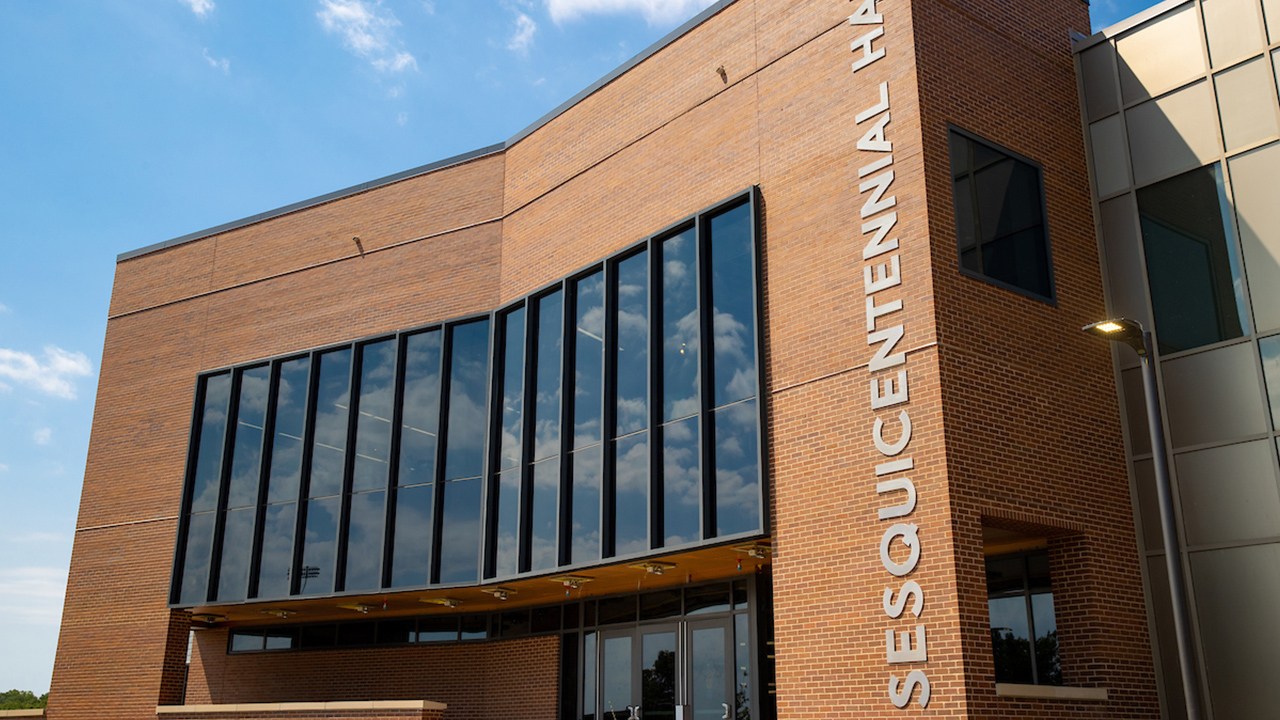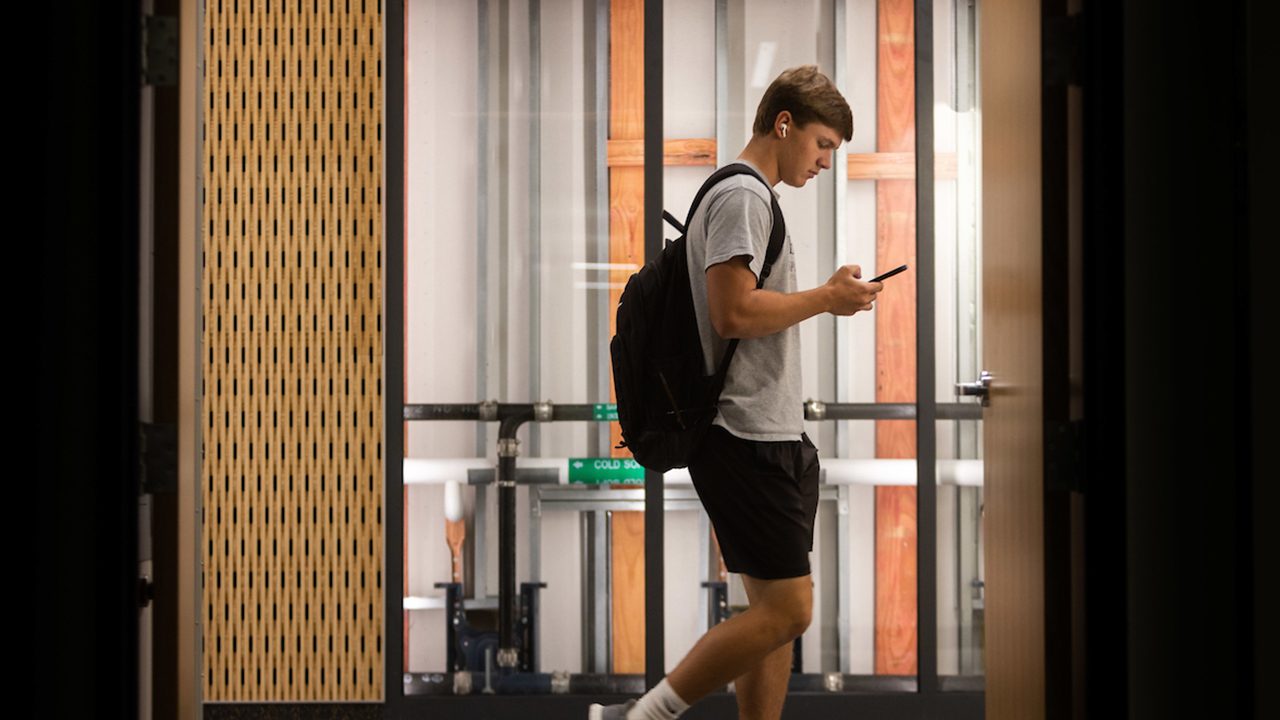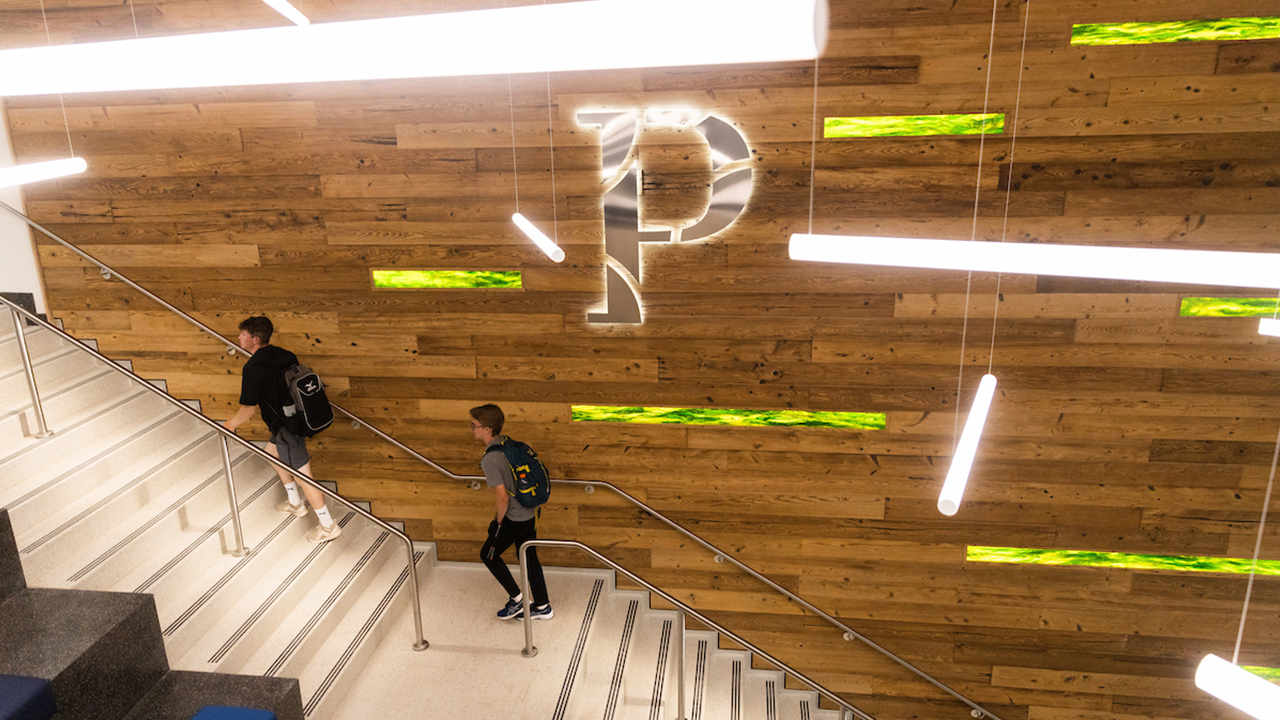


The University of Wisconsin-Platteville’s newest building, Sesquicentennial Hall, has received LEED Gold certification from the U.S. Green Building Council, re-confirming UW-Platteville’s continuing commitment to sustainability. LEED is the most widely used green building rating system worldwide and provides a framework for healthy, efficient and cost-saving green buildings. Sesquicentennial Hall is the first Universities of Wisconsin building dedicated to engineering to achieve a LEED Gold certification.
"Achieving LEED Gold certification is a remarkable accomplishment,” said UW-Platteville Chancellor Tammy Evetovich. “Our infrastructure is a reflection of our values as a university, and this achievement reaffirms our commitment to sustainability and wellness, as well as creating healthy spaces that are cost-effective and will serve our campus and community for many years. This was the result of hard work by many people – faculty, staff and external partners – and I am grateful for everyone’s collective efforts in achieving this milestone."
To achieve LEED certification, a building project earns points based on meeting prerequisites in the areas of carbon, energy, water, waste, transportation, materials, health and indoor environmental quality. A number of Sesquicentennial Hall’s sustainability features double as teaching tools, such as a visible storm water system wrapping around the building and bicycle infrastructure. Many of the prerequisites for LEED certification aren’t outwardly visible – such as water, energy use and the selection of building materials – but, QR codes throughout the building will link to video clips and additional information about these features.
“This certification demonstrates to all that the university is serious about sustainability, and will enable the building itself to be a learning tool that allows all students to learn about sustainable building practices,” said Dr. Philip Parker, acting dean of the College of Engineering, Mathematics and Science.
The project received alternative energy LEED credits for the university’s solar array in nearby Memorial Park, which has produced 4.1 million kilowatt hours of electricity to date and 3 million kilowatt hours last year alone. The power generated by the solar array is sufficient to make Sesquicentennial Hall a “net-zero” energy building.
LEED Gold is the second highest certification level, behind platinum. Sesquicentennial Hall marks the 31st LEED-certified building within the Universities of Wisconsin and is the 19th to be certified LEED Gold. It is the first Universities of Wisconsin building certified using LEED version 4, a recent update of the LEED green building standard with more demanding requirements.
For more information about LEED certification and Sesquicentennial Hall, visit www.usgbc.org/projects/sesquicentennial-hall.